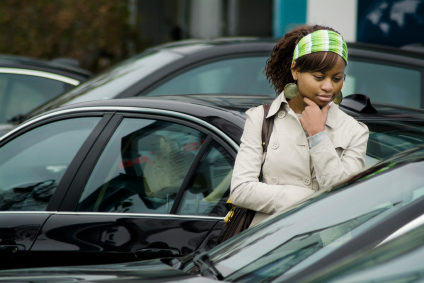There are basically two categories of vehicles currently driving the greatest profits for automakers and their retailers, trucks and SUVs. A majority of truck sales come from men while SUV/Crossover sales are driven mostly by women. Some even go as far as to say that SUV sales are being driven particularly by single women.
It is easy for the mostly male retailer front line to connect with male customers. The matching of the two similar “natures” is obvious. But what about engaging with women? Women and men have different wants, needs and desires when it comes to vehicle purchasing and service. And they generally communicate those wants differently.
Perceptions are the Problem
In my first post for the Maritz CX Cafe, I spoke of the historic disconnect between women customers and the auto industry. In the same post, I made the case for a more gender-personalized CX experience. Automakers are paying a lot more attention to women customers these days, but mainly via their marketing. So why are we still reading articles, both past and present, stating that a substantial number of women still feel disrespected and misunderstood when buying and servicing vehicles at the dealership? Many of those “perceptions” result from past “experiences”. But OEMs, including auto retailers, know that women customers are critical to the future of the industry. Drew Harwell makes an excellent case for this in his Washington Post piece titled, “A Tension for America’s Auto World: Winning Women Behind the Wheel”.
Too many women still enter the dealership with the perception, or maybe even the misconception, that she is in dangerous territory. Is it deserved? Who cares? Because perceptions eventually evolve to reality if they are not diffused by a “memorable customer experience”. As Customer Experience Manager for a large Buick GMC service center, I believe that most retailers are doing a better job of delivering satisfaction to all customers, including women. But, in my opinion, it really doesn’t matter how we are doing with women these days with “satisfaction”. We have to do better with women in order to combat those nagging perceptions from the industry’s past. Besides, in the future, delivering “satisfaction” will only provide a “chance at bat”. The hits and home runs will come from memorable experiences.
A Change in Behavior is Required
How do we deliver more memorable “experiences” for women customers? First, I believe we need to assume that women and men usually communicate on different channels. Therefore, it might benefit the (mostly male) retail front line to begin to differentiate the way they communicate with women customers from their male customers.
I made the case for a more Gender-Personalized CX Design in my first CXCafe post. But design is easy compared to changing the behavior of the mostly male retailer front line. However, when it comes to modifying behavior, 12-step programs have a solid track record. Here are my suggestions, after almost 2 decades of monitoring this challenge.
“Traditional” Decision Steps
- Step 1– Assume that men and women communicate differently, until you learn differently on a customer by customer basis. Learn to accept** that a substantial number of women assume that they are not going to be treated as fairly as men, even before they enter the dealership. And that perception/misconception will evolve into a reality unless she has a memorable experience.
** they say that if you can’t accept the first step…the rest of the steps are much less effective
- Step 2– Make a commitment to learn more about how women communicate differently from men. Most experts agree that they do.
- Step 3– This one is for management. If you don’t believe that the differences between how men and women communicate are real, your crew won’t either.
Action Steps
- Step 4– Eye contact always.
- Step 5– Interruption guarantee. Count to 3 before responding to women customers. (my wife & daughters say I need some help here)
- Step 6– Suggestions…not solutions. By nature, most men tend to rush to the bottom line. Staying in a “suggestion” mode will differentiate you dramatically with women.
- Step 7– Explain to them how it works…explain the process in their terms…break down the steps…mange the expectations.
- Step 8– Nod your head to affirm you are listening. And remember, when women nod their heads positively…. it’s not necessarily a closing signal. Quite often it means “tell me more”.
- Step 9– Make an extra effort to seek referrals from women. It’s a proven fact that women refer more than men, when they have a great “consumer experience”.
Maintenance Steps
- Step 10– Continue to practice steps 4-9.
- Step 11– Assume difference with women customers until you find out otherwise. In addition to a more gender differentiated communication style, safety, personal security and practicality are generally of more interest. And be prepared to provide expanded information.
- Step 12– Having worked all of these steps, you’ll come to realize that when you meet the expectations of women customers, you exceed the expectations of every other customer group…men, multi-cultural, millennials, etc.
Now is the Time
There has never been a more critical time for the retail front line to connect better with women on their channel. Why? Because women, in addition to millennials, are the world’s fastest growing audience. Whether it’s a reality or a perception from the past that women perceive a disconnect with auto retailers really doesn’t matter. If retailers are going to be successful with SUV/Crossover owners, they better change their behavior with women customers.
